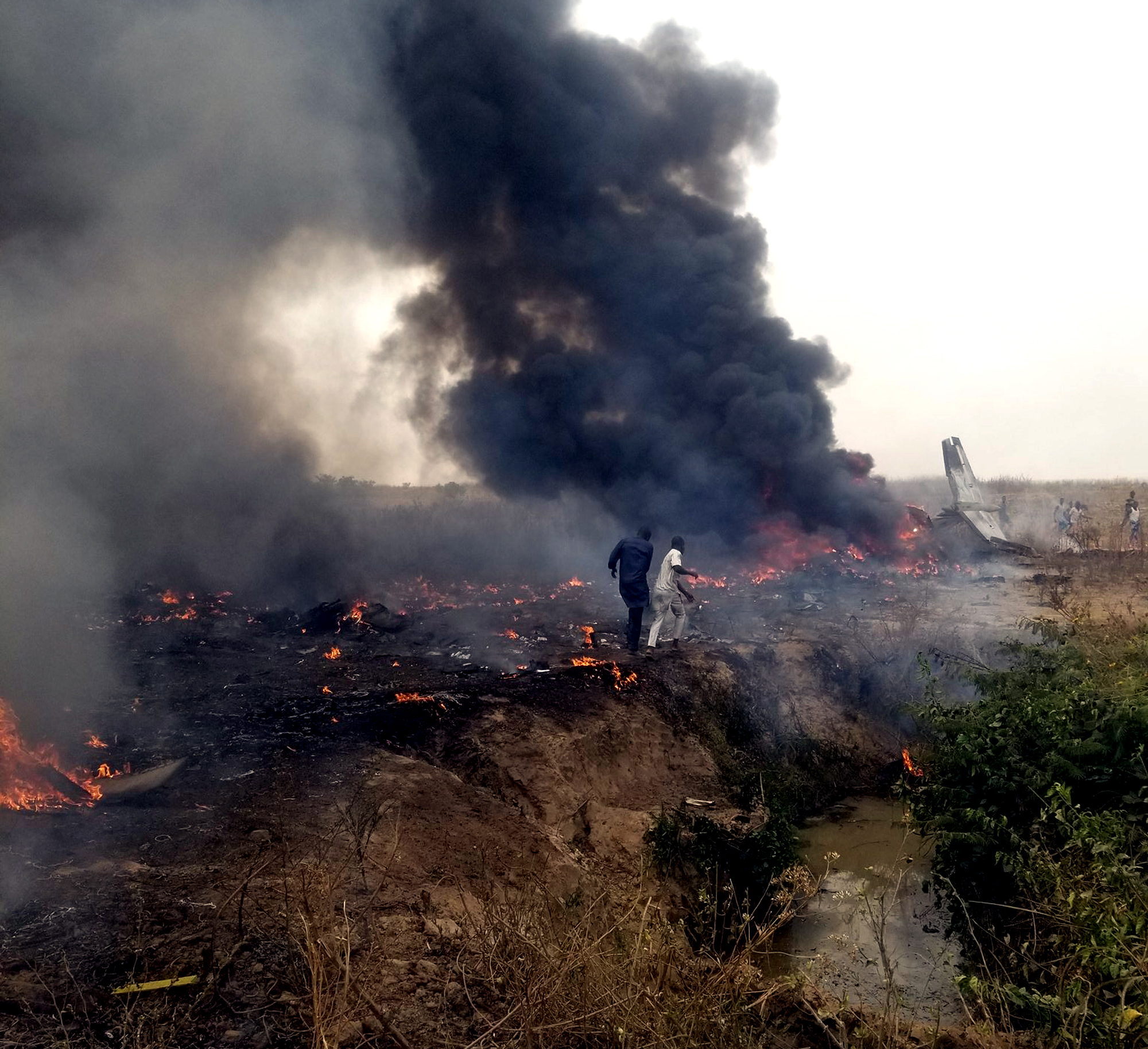Health
WHO Calls For Urgent Action to Ramp-up Production of COVID-19 Vaccines

AN) The World Health Organisation (WHO) says urgent action is needed to increase production of COVID-19 vaccines that will be distributed through the global initiative making these medicines accessible to all countries.
The WHO Director-General, Dr Tedros Ghebreyesus, made the call at biweekly news briefing on COVID-19 at WHO headquarters in Geneva.
In his speech posted on its website, he said this was a landmark week for COVAX.
“In total, COVAX has delivered more than 20 million doses of vaccine to 20 countries. In the next week, COVAX will deliver 14.4 million doses to a further 31 countries.
“The volume of doses being distributed through COVAX is still relatively small.
One of our main priorities now is to increase the ambition of COVAX to help all countries end the pandemic.“This means urgent action to ramp up production. Next week, WHO and our COVAX partners will meet with partners from governments and the industry to identify bottlenecks in production and discuss how to solve them,’’ he said.
Ghebreyesus also said this was a landmark week for COVAX, with the first vaccinations starting in Ghana and Côte d’Ivoire.
In addition to those two countries, COVAX had now delivered vaccines to Angola, Cambodia, Colombia, the Democratic Republic of the Congo, the Gambia, India, Kenya, Lesotho and Malawi.
He said COVAX had also delivered vaccines to Mali, Moldova, Nigeria, the Philippines, the Republic of Korea, Rwanda, Senegal, Sudan and Uganda.
The director-general said WHO and its COVAX partners would meet with government and industry representatives next week to identify “bottlenecks” and relevant solutions.
“We currently face several barriers to increasing the speed and volume of production, from export bans to shortages of raw materials including glass, plastic and stoppers,’’ he said.
According to him, WHO is working on four approaches to the issue, including calling for waiving patent rights for vaccines.
“Many countries with vaccine manufacturing capacity can start producing their own vaccines by waiving intellectual property rights, as provided for in the TRIPS agreement”.
The TRIPS Agreement, which came into effect on January 1, 1995, is to date the most comprehensive multilateral agreement on intellectual property adopted by all 194 members of the World Trade Organisation (WTO).
He said those provisions were there for use in emergencies saying, “if now is not a time to use them, then when?
“This is unprecedented time, and WHO believes that this is a time to trigger that provision and waive patent rights”.
Ghebreyesus said, in the short-term, the UN health agency was connecting companies that produce vaccines with others that had excess capacity to fill and finish them.
He, however, cited the partnership between Johnson & Johnson and Merck, announced this week, as an example.
“We need more partnerships like this, and we need them in all regions,” the director-general said.
In addition, he said WHO was also advocating bilateral technology transfers, so that companies that owned vaccine patents could license them to another company.
“A good example of this approach is AstraZeneca, which has transferred the technology for its vaccine to SKBio in the Republic of Korea and the Serum Institute of India, which is producing AstraZeneca vaccines for COVAX”. (NAN)
Health
Teaching Hospital Performs 2nd Kidney Transplant in Maiduguri

The University of Maiduguri Teaching Hospital (UMTH), has successfully performed its second living-donor kidney transplant, 15 years after its first living-donor kidney transplant
The Chief Medical Director (CMD) of the UMTH, Prof. Ahmed Ahidjo, made this known at a news conference on Wednesday in Maiduguri.
“This is not the first time UMTH is doing the transplant.
The first time UMTH conducted a kidney transplant was in August 2010 and now the hospital has come back with full force to resume the excercise,” he said.Ahidjo also announced that the already 20 patients were admitted awaiting surgery on the same kidney transplant.
He appealed to donors to contribute funds to support the have not patients who needed the surgery so dearly.
The CMD said that though, the hospital provided free services being a federal government facility, adding that the patient’s dialysis had been subsidised by the government by reducing everything to N12,000 which was less than eight dollars compared with 1,000 dollars charged for same dialysis elsewhere.
Ahidjo said that the target was to make transplant one of the cheapest in West Africa, saying their facility was largest in the country with a capacity to accommodate up to 85 patients at once.
“UMTH has four fully equipped theatre rooms. All for kidney transplant which were fully equipped with modern equipment,” the CMD said.
He, however, commended TETFUND for its support to the hospital in terms of equipment and other infrastructure.
Ahidjo also commended Gov. Babagana Zulum of Borno for donating N50 million to the hospital to carry out research on causes of kidney related diseases in the North-east.
The CMD said that some of the research findings revealed that diabetics, hypertension and dehydration were linked with the kidney related diseases in the region.
“The causes of kidney issues for now are diabetics, highpertension and exact causes are not yet known but many samples were taken to laboratories and the result is awaited,” Ahidjo said. (NAN)
Health
WHO Declares Mpox Public Health Emergency Concern

The World Health Organisation (WHO), says said the Mpox upsurge has continued to meet the criteria of a Public Health Emergency of International Concern (PHEIC) set forth in the International Health Regulations (IHR).
Dr Tedros Ghebreyesus, WHO Director-General said this in a statement.
Ghebreyesus said the announcement followed the fourth meeting of the IHR emergency committee regarding the upsurge of mpox, held on June 5.
According to him, the committee, recognising progress in the capacity to respond in certain countries, advised the WHO boss that the event continues to constitute a PHEIC.
He said that it was based on the continuing rise in number of cases, including a recent increase in West Africa, and likely ongoing undetected transmission in some countries beyond the African continent
“Ongoing operational challenges in responding to the event, including concerning surveillance and diagnostics, as well as a lack of funding, make prioritising response interventions challenging and require continued international support,” he said.
Ghebreyesus concurred with the committee’s advice and issued the committee’s revised temporary recommendations to Member States experiencing mpox outbreaks.
He said the recommendations will guide countries’ efforts to prevent and control spread of the disease.
According to him, the full report of the fourth meeting will be issued in the third week of June.
“The upsurge of mpox in the Democratic Republic of the Congo and its spread to neighbouring countries was first determined to be PHEIC by Ghebreyesus on Aug. 14, 2024.
“Since then, the committee has met on three additional occasions, each time, advising the director general that the event continues to constitute a PHEIC,” he said (NAN)
Health
First Lady, Remi Tinubu, Distributes 10,000 Professional kits to Midwives in South-East

Nigeria’s First Lady, Sen. Oluremi Tinubu, on Monday in Enugu, distributed 10,000 Professional Kits for midwives in South-East aimed improving healthcare delivery in the zone.
Flagging-Off the programme during her two-day official visit to Enugu State , the president’s wife said the distribution were for midwives in the Southeast States of Abia, Anambra, Ebonyi Enugu and Imo.
According to her, the event is to complement the ongoing Federal Government retraining of health workers to improve healthcare of Nigerians.
The programme was part of her Renewed Hope Initiative (RHI) aimed at improving the healthcare of Nigerians especially the vulnerable groups.
She said, “This is a training for 120,000 frontline health workers nationwide.
I have been told that 60,470 health workers have already completed their training.“In view of this, RHI procured 60,000 branded scrubs and 60,000 pairs of crocs as an incentive to encourage health workers”.
She added that, “Since the initial launch of RHI in January 2025, we have distributed 50,000 scrubs and pairs of crocs to five geopolitical zones, namely North Central, North East, North West, South South and the Southwest.
“Today, we are in Enugu to distribute the remaining 10,000, each of the crocs and scrubs”.
She explained that the donation towards it had been made possible through the general support of Anonymous Global Partners, dedicated towards achieving health outcomes for Nigeria citizens.
The first lady said that the donors were committed to supporting the Organisation of the African First Ladies for Development and the health sector in Nigeria and across the world with a specific focus on reducing infant and maternal mortality and morbidity.
“Tuesday by the grace of God, I will be launching the “Free to Shine Triple Elimination Campaign” for HIV, AIDS, Syphilis and Hepatitis B in Enugu.
“This initiative aims to promote healthier mothers, reduce new HIV infections amongst mothers of reproductive age.
“ It will also eliminate mothers through child transmission of HIV, AIDS, which is the vertical transmission and provide treatment for children born with HIV,” Tinubu said.
She said the RHI would be presenting an additional grant of N50 million to the First Lady of Enugu State, with a sum of N50,000 each to 1,000 women petty traders in Enugu State to recapitalize their existing businesses.
In her welcome address, the Wife of Enugu Governor, Mrs Nkechinyere Mbah, appreciated Tinubu for her commitment in building an inclusive society through RHI.
She said the initiative had significantly impacted countless lives across the nation’s diverse geopolitical zones.
“Your noble endeavour has brought succour and hope to communities that have long yearned for such intervention. Here in Enugu State, we are profoundly grateful for the transformative outcomes of RHI.
“Midwives are at the frontiers of maternal and child health. Empowering these important healthcare workers is crucial to the push to reduce maternal and under- five mortality rates radically,” Mbah said.
Tinubu also inaugurated the state-of-the-art Technical, Vocational Education, and Training College (GTC), Enugu.(NAN)
























